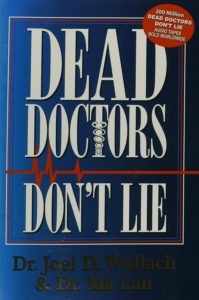Alzheimer’s Disease, How Does the Disease Develop?

Alzheimer’s is a neurodegenerative disease that is typified by progressive weakening of cognitive skills, affecting all aspects of day to day activities. A person suffering from Alzheimer’s is likely to undergo severe behavioral changes.
Emil Kraepelin was the first person to identify the symptoms of Alzheimer’s disease. German psychiatrist, Alois Alzheimer, studied typical neuropathology for the first time in the year 1906.
 The distinct and the most striking symptom of Alzheimer’s disease is amnesia.
The distinct and the most striking symptom of Alzheimer’s disease is amnesia.
In the early stages, a victim of Alzheimer’s is quite often found to be in a confused state, and facing problems with short-term memory. There are usually problems with paying attention and in terms of spatial orientation.
The personality of the person affected usually undergoes a massive change coupled with frequent mood swings and the language of the patient may be affected. However, it should be noted that Alzheimer’s disease does not affect everyone in the same way,and this can make the disease quite difficult to diagnose.
In the early stages of the illness, patients tend to lose energy and their alertness of mind decreases but this change is hardly noticeable. Also, there is loss of memory and the person may become moody. Overall, the affected person becomes slow in responding to everyday stimuli. Eventually, due to the significant memory loss the patient tries to shields himself or herself from anything that they find unfamiliar, as a result the person can become highly confused and get lost easily and frequently.
In the next stage, the victim of Alzheimer’s starts seeking assistance to carry out those tasks that require heavy lifting. Their speech starts getting affected and quite frequently they stop abruptly after saying half a sentence. Depression, irritation and restlessness are some of the common traits during this stage of illness.
Slowly, the individual becomes disabled. They may remember past incidents but can’t recall the very recent ones. In the advanced stage it becomes difficult for the patient to distinguish between day and night or even recognize the faces of very near and dear ones.
In the last stage of the disease, patients merely exist. They experience total loss of memory and they are unable to eat properly and cannot control themselves to any great extent. Constant care is needed for a patient at this stage. The individual also becomes prone to other diseases such as pneumonia, infections, etc. Ultimately they become confined to bed and this fatal stage leads to death.
Alzheimer’s disease is not curable but there are treatments available that can slow its progress and there is promising research that may lead to a cure. I would suggest the disease is largely a natural product of aging and is preventable in the first place.
 “Now the best way to avoid Alzheimer’s is to eat a couple of eggs every morning for breakfast, not cooked in margarine or fried, you want to consume as much as 72oz of red meat every single month.
“Now the best way to avoid Alzheimer’s is to eat a couple of eggs every morning for breakfast, not cooked in margarine or fried, you want to consume as much as 72oz of red meat every single month.
 I know that sounds like a lot, but it’s just a quarter-pounder a day, and you want to supplement with all 90 essential nutrients, and when you get to the Vitamin E level you want to have at least 2,000 international units of Vitamin E, and you want 500mcg of Selenium, and if you do that, even if you already have Alzheimer’s disease, you can honestly expect to have a significant amount of return of memory. Great studies done by University of California at San Diego and the Salk Institute that says by taking 2,000 icu of Vitamin E alone, even if you have advanced Alzheimer’s disease, you can get a significant amount of memory return.” (Dr. Joel Wallach, “A Healthier and Longer Life”)
I know that sounds like a lot, but it’s just a quarter-pounder a day, and you want to supplement with all 90 essential nutrients, and when you get to the Vitamin E level you want to have at least 2,000 international units of Vitamin E, and you want 500mcg of Selenium, and if you do that, even if you already have Alzheimer’s disease, you can honestly expect to have a significant amount of return of memory. Great studies done by University of California at San Diego and the Salk Institute that says by taking 2,000 icu of Vitamin E alone, even if you have advanced Alzheimer’s disease, you can get a significant amount of memory return.” (Dr. Joel Wallach, “A Healthier and Longer Life”)
Vitamin E (Tocopherol)
Vitamin E is a fat-soluble vitamin. Vitamin E helps in the overall health of the sexual organs, is good for the skin and helps promote its healing. Is good for the heart and lungs. Vitamin E acts as an antioxidant, protecting vitamins A and C, red blood cells and essential fatty acids from destruction.
Lack of Vitamin E may cause sterility in both sexes, loss of hair, and miscarriage.
Food sources of Vitamin E: wheat germ oil, sunflower seed kernels, sunflower oil, safflower oil, hazelnuts, peanuts, corn oil, spinach, broccoli, kiwi, mango.
Alzheimers Diet:
How Diet Can Prevent Alzheimer’s Disease and Reverse Its Effects. Critical Lifestyle Changes to Boost Long-Term Brain Health and Cognitive Function
Learn how to develop a ‘bulletproof’ brain that will stay healthy for years and even decades.



